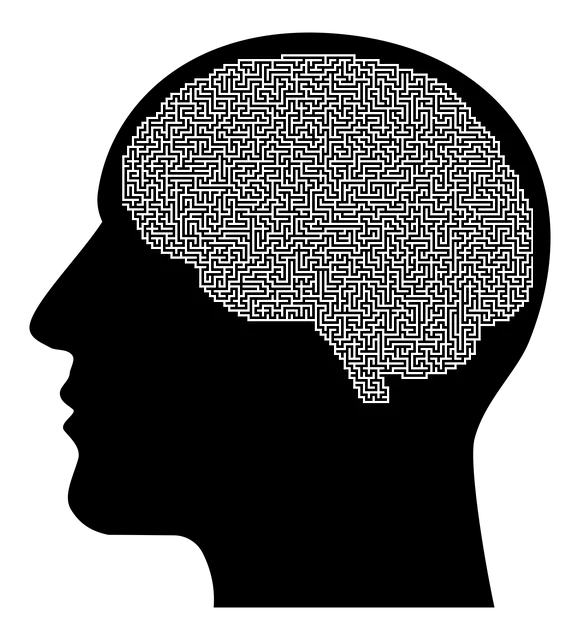Parker Kaiser Permanente addresses high misdiagnosis rates in anxiety disorders by implementing holistic, evidence-based Parker Kaiser Permanente behavioral health services. Their Community Outreach Program offers educational workshops and collaborative partnerships to improve community integration and mental wellness conversations. Leveraging advanced technologies and data analysis for comprehensive risk assessments, combined with communication strategies like podcasts, enhances diagnostic accuracy. The goal is to provide tailored care for anxiety relief, confidence building, and inner strength development through precise diagnoses and effective treatments.
Mental illness diagnosis accuracy is a critical aspect of effective treatment. Misdiagnosis rates remain high, impacting patient care and outcomes. This article explores efforts to enhance diagnosis accuracy, focusing on strategies employed by Parker Kaiser Permanente’s behavioral health services. We delve into the challenges of misdiagnosis, their implications, and the innovative approaches and technologies being implemented to improve mental health care assessment, ensuring more precise and timely interventions.
- Understanding the Challenge: Misdiagnosis Rates and Their Impact
- Parker Kaiser Permanente's Approach to Enhancing Diagnosis Accuracy
- Strategies and Technologies for Improving Mental Health Care Assessment
Understanding the Challenge: Misdiagnosis Rates and Their Impact

Misdiagnosis rates in mental health are a significant concern within the healthcare system, particularly with conditions like anxiety disorders. Studies show that many individuals struggle with undiagnosed or incorrect labels, which can lead to improper treatment plans and delayed access to effective support. This challenge is further exacerbated by the complexity of these illnesses, as symptoms often overlap, making accurate assessments difficult.
At Parker Kaiser Permanente behavioral health services, we recognize the impact of misdiagnosis on patients’ lives. Incorrect diagnoses may result in unnecessary anxiety, a lack of confidence, and even a hindered sense of inner strength. We strive to improve accuracy through comprehensive evaluations and evidence-based practices to ensure individuals receive the most appropriate care for their unique needs, ultimately fostering Anxiety Relief, boosting Confidence, and promoting Inner Strength Development.
Parker Kaiser Permanente's Approach to Enhancing Diagnosis Accuracy

Parker Kaiser Permanente is renowned for its commitment to enhancing mental health care through innovative approaches. One notable strategy involves a comprehensive Community Outreach Program that aims to improve diagnosis accuracy. By actively engaging with communities and providing accessible behavioral health services, they bridge the gap between patients and professional support. This initiative includes educational workshops, Social Skills Training sessions, and collaborative partnerships with local organizations to foster open conversations about mental wellness.
The program’s success lies in its holistic approach, addressing not just diagnosis but also community integration and individual well-being. Through tailored interventions, Parker Kaiser Permanente ensures that individuals receive accurate assessments and evidence-based treatments, ultimately improving overall mental health outcomes within the community.
Strategies and Technologies for Improving Mental Health Care Assessment

Mental health care assessment is a complex process that requires a multifaceted approach to improve accuracy and effectiveness. One key strategy lies in the integration of advanced technologies, such as AI-powered tools and digital platforms, into traditional assessment methods. For instance, Parker Kaiser Permanente’s behavioral health services have leveraged these innovations to enhance diagnosis precision. These technologies can analyze vast amounts of data, including patient history, symptoms, and behavior patterns, to provide comprehensive risk assessments, aiding mental health professionals in making more informed decisions.
Furthermore, effective communication strategies play a vital role in this process. Mental wellness podcast series production, for example, offers a creative avenue to educate both patients and practitioners about various mental health conditions, treatment options, and recovery journeys. Such initiatives foster open dialogue, promote understanding, and encourage individuals to seek help early on. By combining these technological advancements with improved communication channels, mental health care systems can better equip professionals to accurately diagnose and treat individuals struggling with mental illness.
Mental illness diagnosis accuracy is a critical aspect of patient care, and efforts like Parker Kaiser Permanente’s behavioral health services demonstrate significant progress. By implementing advanced assessment technologies and adopting innovative strategies, the field of mental health care is navigating towards more precise diagnoses. These improvements not only enhance patient outcomes but also foster a more compassionate and effective support system for those facing mental health challenges.




